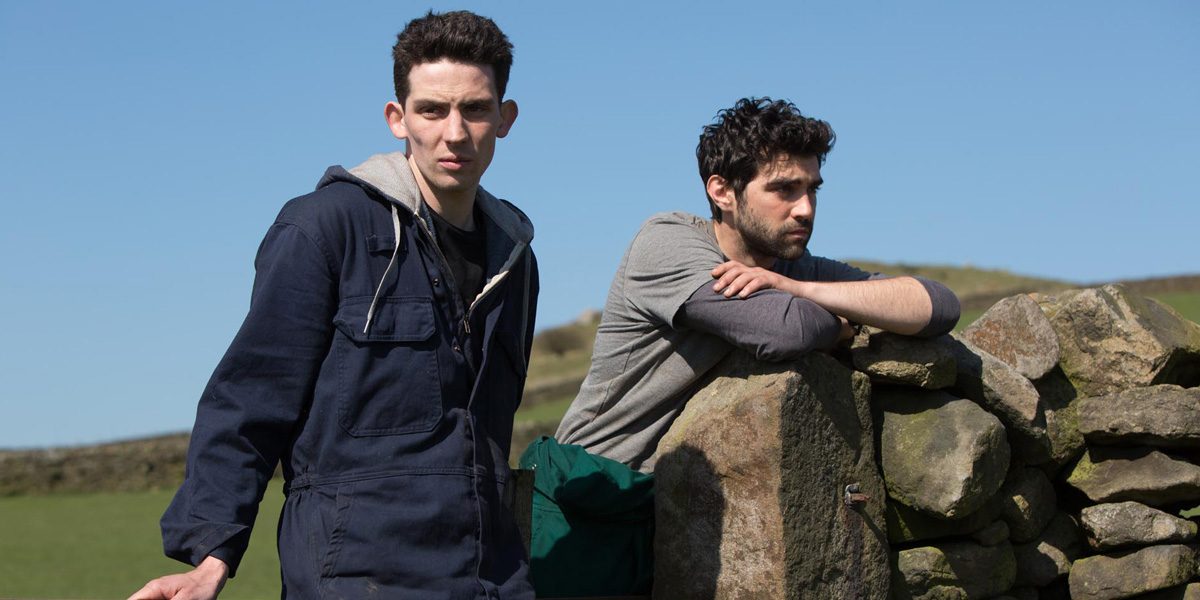5. Thelma (dir. Joachim Trier)

Thelma (Eili Harboe) leaves her deeply religious family in order to study at a university in Oslo. After becoming infatuated with Anja (Kaya Wilkins), one of her colleagues, she begins experiencing violent seizure. As she tries to understand her condition, Thelma uncovers her family’s dark past and discovers the true power lying within her.
Joachim Trier returns to his native Norway after helming his first English-language effort (‘Louder Than Bombs’) in 2015. The result is a slow-burn psychological thriller that talks about the power of desire and what would happen if we could turn our deepest wishes and darkest thoughts into reality.
Thelma’s desires stand against everything she has been taught by her parents, yet the strength of her feelings overpower her. This struggle is effectively portrayed by Eili Harboe, who gives it her all as the titular character, growing from from an introverted girl to an empowered young woman fully in control of her abilities.
On its way to an explosive finale, ‘Thelma’ expertly weaves in supernatural elements, turning it into a genre film that truly stands out.
4. BPM (Beats Per Minute) (dir. Robin Campillo)

Set in the early 1990s in France, during the aids epidemic, ‘BPM (Beats per Minute)’ follows members of Act Up Paris as they try to raise awareness and demand action from the government and pharmaceutical companies. At the same time, the film focuses on the budding relationship between Sean, an HIV-positive activist (Nahuel Pérez Biscayart) and Nathan (Arnaud Valois).
Robin Campillo devotes equal screen time to the political and personal stories in the film, granting us some valuable insight into the Act Up meetings and events, while presenting the gut-wrenching reality of Sean and Nathan’s relationship.
As Sean’s health deteriorates fast, lying in bed, exhausted and weak, feeling his body turn against him, all he wants is to feel Nathan’s touch again. Nathan sits on the bed next to Sean, slips a hand under the cover and provides Sean with sexual release. As framed by Campillo, this makes for one of the most tender and moving moments in the film.
‘BPM (Beats per Minute)’ doesn’t avoid the fatality of AIDS, but bravely chooses to face it head on. Whether dancing together on the streets of Paris, crashing into a pharmaceutical company’s headquarters or mourning the death of one of their own, these characters are together for better or worse, fighting for a better world.
3. A Fantastic Woman (dir. Sebastián Lelio)

When Marina’s older boyfriend Orlando suddenly dies, she is left to face a society that doesn’t understand her. Looking to mourn her lover’s death, she will have to battle Orlando’s prejudiced family, who simply cannot understand how he could’ve fallen in love with a transgender woman.
Her quest for closure is not easy. Marina faces one dehumanising experience after the other, something that could be enough to break down a regular person. But Marina is so much more than that. Played to perfection by the revelatory Daniela Vega, Marina is indeed a fantastic woman. She exudes strength and determination and fights back in the face of adversity.
In this regard, Sebastián Lelio’s Oscar-nominated film could very well be the most aptly-titled movie of the past year. He initially brought Vega on board as a consultant, in order to accurately capture the experiences of the transgender lead, before deciding on her to carry this tale of grief and empathy.
The surreal scene in which Marina imagines herself in the centre of a club, dancing together with a slew of backup dancers, dressed in a gold and silver sparkling top before soaring to the sky illustrates the kind of star that Marina truly is inside.
2. Call Me By Your Name (dir. Luca Guadagnino)

Adapted from André Aciman’s novel, ‘Call Me By Your Name’ tells the love story between Elio (Timothée Chalamet), a 17-year old living in Italy with his family and Oliver (Armie Hammer), a 24-year old graduate student who arrives to work as his father’s assistant in the summer of 1983.
Without a doubt one of the most celebrated films of the past year, ‘Call Me By Your Name’ has followed the wave of critical and commercial success all the way to the Academy Awards where it received four nominations (including Best Picture).
Elio spends his time reading or transcribing music, he is sophisticated and cultured for his age. Oliver is the charming American who disrupts his way of being. Their relationship develops slowly as Guadagnino takes his time in bringing them closer. When the two are finally brought together, Guadagnino makes a deliberate choice in avoiding the explicit sex scenes that are usually found in queer cinema, in order to confer intimacy to the long-awaited moment.
Timothée Chalamet is the true revelation of this film (and quite possibly the entire year) as he perfectly captures Elio’s physicality, whether it’s jerking his body away at Oliver’s touch or giving in to his desires and giving his hands and lips free reign as the two lovers finally share a kiss.
The screenplay (James Ivory), cinematography (Sayombhu Mukdeeprom) and music (original compositions by Sufjan Stevens) work together to create the film’s distinct tone and texture, transporting us to 1980’s Northern Italy with incredible ease and with such effect that we find ourselves wanting to come back again and again. If Luca Guadagnino’s talk of further sequels is anything to go by, that might actually become a reality.
1. God’s Own Country (dir. Francis Lee)

Johnny Saxby (Josh O’Connor) lives on his family’s Yorkshire farm with his ailing father and grandmother. When he’s not tending to his farming duties, he wastes away his time getting drunk or having casual sex. When Gheorghe (Alec Secareanu), a Romanian migrant worker, is hired to help with lambing season, Johnny will have to face the emotions he’s been numbing down for so long.
An assured debut from filmmaker Francis Lee, ‘God’s Own Country’ speaks more through its silence than through its dialogue. This is not a story about discovering one’s own sexuality, but rather about giving in to emotions and allowing yourself to be loved.
In the beginning, Johnny shows resentment towards Gheorghe, before trying to engage in the only way he can find release, through casual sex. Their sex scene is brilliantly choreographed and it shows us a lot about each character. Comparing their physicality with some of their latter intimate scenes shows us how much Johnny has grown under Gheorghe’s influence.
Gheorghe shows Johnny tenderness and affection, something he hasn’t allowed himself to experience so far. As Gheorghe prepares dinner for both of them, he tastes Johnny’s pasta before adding a pinch of salt to make sure the taste is just right. Johnny’s expression throughout the scene shows us how much impact such a small gesture can have.
When Johnny messes things up, it seemed inevitable. He had so many walls built around him, tearing them all the way down was bound to be impossible. But Francis Lee gives us something very rare in queer cinema: hope.
Queer narratives focused so much on unrequited love, brutal homophobia, tragic endings and so much more, but ‘God’s Own Country’ moves beyond those aspects to bring forward the hopeful love story that queer audiences deserve.
Johnny recognises his love for Gheorghe and is finally prepared to accept his feelings. As he goes after Gheorghe to ask him to come back with him, their reunion will tug at the heartstrings of every viewer and as they return home in their now idyllic Yorkshire field, with Patrick Wolf’s ‘The Days’ playing, we’re left with a renewed sense of hope and a restored faith in true love, exactly the way Francis Lee intended.
Queer cinema set a high bar in 2017 through the diverse body of work released by auteurs worldwide. Luckily, 2018 is poised to continue offering the same quality and diversity: “The Miseducation of Cameron Post” has already won big at the Sundance film festival, winning the US Grand Jury Prize for its honest portrayal of a teen sent to a gay conversion camp, “Boy Erased” which follows a similar plot is set for release later this year and boasts a notable cast (including Lucas Hedges, Nicole Kidman and Xavier Dolan), Sebastián Lelio returns with lesbian-drama “Disobedience” starring Rachel Weisz and Rachel McAdams, “Soldiers. Story from Ferentari” is one of the first Romanian films explicitly portraying a gay relationship and “Love, Simon” will represent one of the first major studio releases to focus on a gay love story.
Queer narratives are being embraced worldwide and LGBTQ characters are being depicted the way they deserve to be depicted: as real people. Let’s hope this becomes the norm.